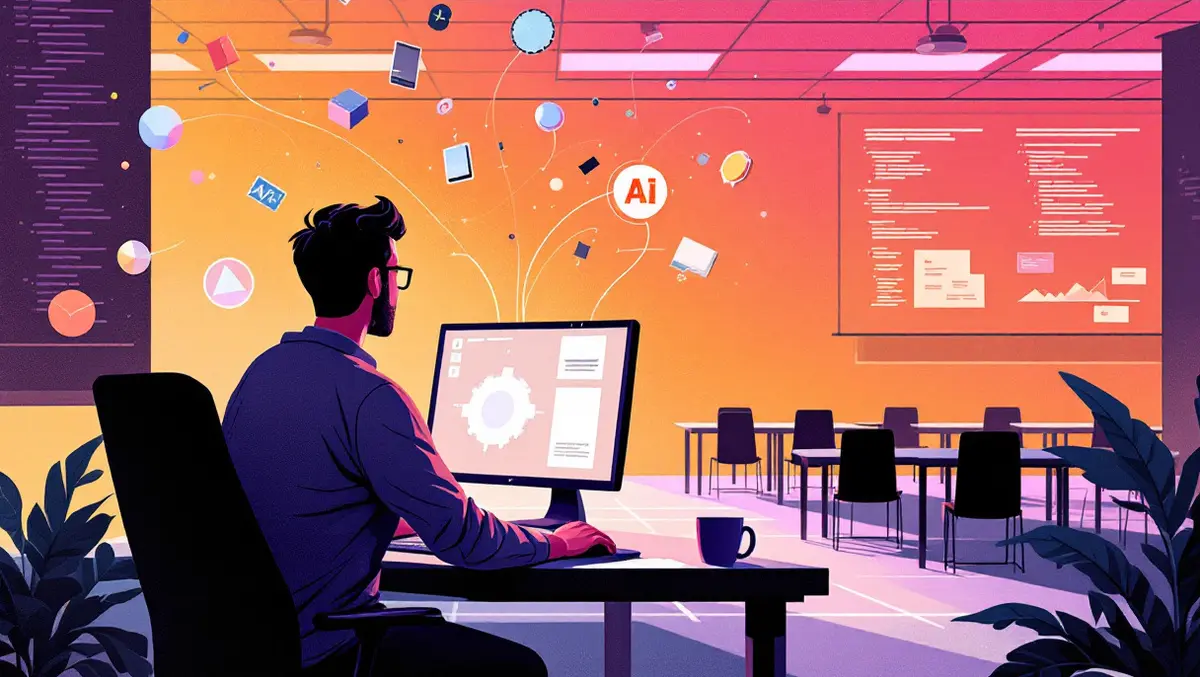Developers are saving significant time each week through the adoption of AI tools for coding, but company investment in upskilling and structured AI programmes is lagging behind, according to findings from BairesDev's inaugural Dev Barometer survey.
The survey drew responses from 1,129 senior developers and 50 project managers across more than 100 industries and 63 countries, providing a detailed perspective on how technology professionals are integrating AI into their work.
Productivity and skills
According to the report, developers using AI for coding are saving an average of 7.3 hours a week - nearly a full workday. One-third of respondents now report that more than a quarter of their code is being written with the assistance of AI tools. The use of AI is not only helping developers work faster, but is also changing the nature of their work and career prospects.
Almost nine in ten developers (89%) say that AI tools have improved their work, particularly citing faster coding (65%), accelerated learning (48%), and increased productivity (45%) as primary benefits. A significant proportion (76%) also report that AI makes their work more fulfilling. Furthermore, 88% perceive AI as creating pathways to new career opportunities, whether through specialising as AI or machine learning (AI/ML) experts, focusing on prompt engineering, or shifting to higher-value tasks such as architecture and creative problem-solving.
Upskilling trends
Although developers report time savings and career growth due to AI, there remains considerable concern around keeping skills up to date. The survey found that 65% of senior developers worry about falling behind on AI skills, making AI and machine learning their primary area for upskilling in the short term. On average, developers are spending 3.7 hours each week on upskilling activities focused on new tools and emerging technologies.
This upskilling is largely self-driven: 66% of developers report learning on the job, while 58% cite YouTube as a key resource. By contrast, only 27% gain new skills through employer-provided training, and just 15% through formal certification. Nearly half of those surveyed (44%) identify AI/ML as their main focus for development in the next quarter, far outstripping interest in other technical skills such as DevOps or cloud technologies.
Organisation support lacking
"Developers are embracing AI. They're boosting productivity, learning faster, and discovering greater purpose as they shift to high-value problem-solving. However, the survey also reveals a critical gap: while developers race ahead, many companies are lagging behind. It is time for businesses to invest in upskilling and AI integration to avoid being left out of the next wave of innovation," said Nacho De Marco, CEO and Co-Founder of BairesDev. "The Dev Barometer gives us an unfiltered look at how tech professionals are shaping and perceiving the evolving tech landscape. We hope these real-time insights will help businesses navigate this shift with confidence."
Only 15% of project managers surveyed reported that their organisations have formal, structured AI upskilling programmes in place. Even in companies described as Fortune 500s, over half of project managers (53%) noted an absence of comprehensive training plans. Additionally, 41% of project managers cited a shortage of AI/ML specialists as a key barrier to broader adoption of AI within their organisations.
Challenges to adoption
The barriers to full AI integration go beyond skills shortages. Data privacy and security remain the leading concerns for both developers (64%) and project managers (38%), along with legacy systems (44%) and unclear client policies (42%). Additional challenges highlighted by project managers included demonstrating return on investment (38%) and resource limitations (36%).
Despite high levels of interest, most organisations are still in exploratory phases regarding AI implementation. Project managers indicated that 64% of their AI-related projects are in initial testing or pilot stages, while only 3% report full AI integration into their workflows and deliverables. When asked which technologies are likely to most disrupt business in the coming year, 87% of developers chose generative AI, followed by AI agents (75%) and proprietary or customised AI models (55%).
Workplace trends
The Dev Barometer also examined attitudes toward remote work within the technology sector. The findings suggest that remote work remains a major factor in attracting and retaining developer talent. A substantial 78% of developers reported that remote work had enabled them to pursue a career in technology. Of those, the majority cited access to global job opportunities (76%), improved work-life balance (61%), and flexible hours (59%) as key benefits.
This ongoing preference for flexible, remote-work arrangements is seen as an important strategy for companies aiming to adapt to changing expectations in the technology workforce, particularly during a time of rapid technological change and evolving talent demands.



